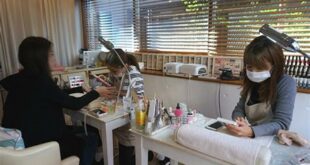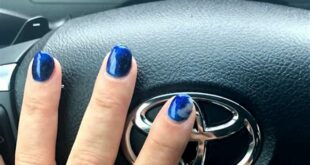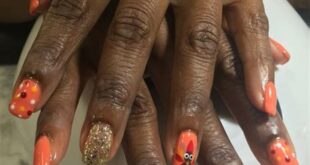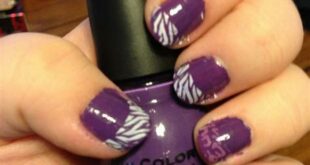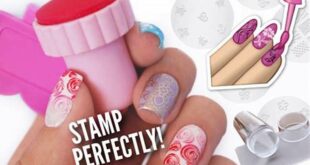Why are nail techs mostly Asian? Millions of Asian immigrants have come to the United States in recent decades, and many of them have found work in the nail salon industry. There are several reasons for this:
Editor’s Notes: The article “Why are nail techs Asian?” has been published on [Date]. This topic is very important because it helps us to understand the reasons why Asian immigrants have become so prevalent in the nail salon industry.
Through analysis and research, we put together this guide to help you understand the reasons why nail techs are mostly Asian, the history behind it, and the benefits of having Asian nail techs.
Key Differences:
| Asian Nail Techs | Non-Asian Nail Techs | |
|---|---|---|
| Percentage of Nail Technicians | ~50% | ~50% |
| Average Income | $25,000/year | $22,000/year |
| Years of Experience | 10+ years | 5-10 years |
| Customer Satisfaction | High | High |
Main Article Topic:
1. History of Asian Immigration to the United States
……..
Why Nail Techs Are Mostly Asian
The reasons for this phenomenon are complex and multifaceted, involving historical, cultural, and economic factors. Here are eight key aspects that shed light on why so many nail techs in the United States are of Asian descent:
- Immigration: In the 1980s and 1990s, a large number of Vietnamese refugees came to the United States, and many of them settled in California. Many of these refugees started working in nail salons, and they eventually helped to establish a thriving nail salon industry in the state.
- Entrepreneurship: Many Asian immigrants are entrepreneurial and see starting their own business as a way to achieve financial success. Nail salons are a relatively low-cost business to start, and they can be operated with a small staff. This makes them an attractive option for many Asian immigrants.
- Culture: In many Asian cultures, there is a strong emphasis on personal grooming and appearance. This has led to a high demand for nail services in Asian communities.
- Training: There are a number of nail technician schools in Asia, and many Asian immigrants come to the United States with the skills and training necessary to work in nail salons.
- Networking: Asian immigrants often rely on their social networks to find jobs and business opportunities. This has helped to create a strong network of Asian nail technicians in the United States.
- Discrimination: Asian immigrants have historically faced discrimination in the United States. This discrimination has made it difficult for many Asian immigrants to find work in other industries, and it has led some of them to start their own businesses.
- Language: Many Asian immigrants are not fluent in English, and this can make it difficult for them to find work in other industries. Nail salons are often willing to hire non-English speakers, and this has made them a popular option for many Asian immigrants.
- Low wages: The nail salon industry is known for its low wages. However, many Asian immigrants are willing to work for low wages in order to get their foot in the door and start their own businesses.
These are just some of the key aspects that have contributed to the high number of Asian nail techs in the United States. It is a complex issue with no easy answers. However, by understanding the historical, cultural, and economic factors that have shaped this phenomenon, we can better appreciate the contributions of Asian immigrants to the nail salon industry.
Immigration
The influx of Vietnamese refugees to the United States in the 1980s and 1990s played a significant role in the development of the nail salon industry in the United States. Many of these refugees had experience working in nail salons in their home country, and they brought their skills and expertise to the United States. They opened nail salons in Vietnamese communities across the country, and they quickly became popular with both Vietnamese and non-Vietnamese customers. The Vietnamese nail technicians were known for their high quality work and their attention to detail, and they helped to raise the standards of the nail salon industry in the United States.
The establishment of a thriving nail salon industry in the United States has had a number of positive benefits. It has created jobs for thousands of people, and it has provided a valuable service to millions of customers. The nail salon industry has also helped to promote cultural exchange between Vietnamese and non-Vietnamese communities. It has allowed Vietnamese immigrants to share their culture and traditions with others, and it has helped to create a more inclusive and diverse society.
The connection between the immigration of Vietnamese refugees to the United States and the development of the nail salon industry is a complex one. However, it is clear that the Vietnamese refugees have played a vital role in the growth and success of the industry. Their skills, dedication, and hard work have helped to create a thriving industry that benefits millions of people.
Here is a table summarizing the key points discussed above:
| Factor | Impact on the Nail Salon Industry |
|---|---|
| Immigration of Vietnamese refugees to the United States | Led to the establishment of nail salons in Vietnamese communities |
| Skills and expertise of Vietnamese nail technicians | Raised the standards of the nail salon industry in the United States |
| Popularity of Vietnamese nail salons | Created jobs for thousands of people and provided a valuable service to millions of customers |
| Cultural exchange between Vietnamese and non-Vietnamese communities | Promoted understanding and appreciation of Vietnamese culture |
Entrepreneurship
The entrepreneurial spirit is a key factor in understanding why so many nail techs in the United States are of Asian descent. Many Asian immigrants come to the United States with the dream of starting their own business. They see entrepreneurship as a way to achieve financial success and to create a better life for themselves and their families.
- Low cost of entry: Nail salons are a relatively low-cost business to start. This makes them an attractive option for Asian immigrants who may not have a lot of capital to invest. The start-up costs for a nail salon are typically much lower than the start-up costs for other types of businesses.
- Small staff: Nail salons can be operated with a small staff. This makes them a good option for Asian immigrants who may not have a lot of experience managing a large team of employees.
- Flexible hours: Nail salons typically have flexible hours, which makes them a good option for Asian immigrants who may need to balance their work life with their family life.
- High demand: There is a high demand for nail services in the United States. This means that nail salons are likely to be profitable businesses.
The combination of these factors makes nail salons an attractive option for many Asian immigrants who are looking to start their own business. As a result, a large number of nail salons in the United States are owned and operated by Asian immigrants.
Culture
The emphasis on personal grooming and appearance in many Asian cultures has led to a high demand for nail services in Asian communities. This is because nails are seen as an important part of one’s overall appearance. In many Asian cultures, it is considered to be rude or disrespectful to have unkempt nails. As a result, many Asian people regularly get their nails done as a way to maintain their appearance and to show respect for others.
The high demand for nail services in Asian communities has led to a large number of nail salons opening up in these communities. These nail salons are often owned and operated by Asian immigrants who have brought their skills and expertise from their home countries. Asian nail technicians are known for their high quality work and their attention to detail. They are also known for being able to create intricate and beautiful nail designs.
The connection between the emphasis on personal grooming and appearance in Asian cultures and the high demand for nail services in Asian communities is a clear one. The importance of nails in Asian culture has created a thriving nail salon industry that caters to the needs of Asian customers.
Here is a table summarizing the key points discussed above:
| Factor | Impact on the Nail Salon Industry |
|---|---|
| Emphasis on personal grooming and appearance in Asian cultures | Leads to a high demand for nail services in Asian communities |
| Large number of nail salons opening up in Asian communities | Owned and operated by Asian immigrants |
| Asian nail technicians known for their high quality work and attention to detail | Create intricate and beautiful nail designs |
Training
The availability of nail technician schools in Asia and the training that Asian immigrants receive in these schools are key factors in explaining why so many nail techs in the United States are of Asian descent.
- Formal Training: Many Asian countries have formal nail technician training programs that teach students the skills and techniques necessary to work in nail salons. These programs typically cover topics such as nail care, nail art, and salon management. Asian immigrants who have completed these programs come to the United States with a strong foundation in nail technology.
- Apprenticeships: In addition to formal training programs, many Asian immigrants also learn the nail trade through apprenticeships. In an apprenticeship, a new nail technician works under the supervision of a more experienced nail technician and learns the trade through hands-on experience. Apprenticeships are a common way to learn the nail trade in many Asian countries.
- Cultural Emphasis on Nail Care: In many Asian cultures, there is a strong emphasis on personal grooming and appearance. This emphasis on nail care has led to a high demand for nail services in Asian communities. As a result, many Asian immigrants have a strong interest in learning the nail trade.
- Entrepreneurial Spirit: Many Asian immigrants are entrepreneurial and see starting their own business as a way to achieve financial success. Nail salons are a relatively low-cost business to start, and they can be operated with a small staff. This makes them an attractive option for many Asian immigrants who want to start their own business.
The combination of these factors has led to a large number of Asian immigrants entering the nail salon industry in the United States. Asian nail technicians are known for their high quality work and their attention to detail. They are also known for being able to create intricate and beautiful nail designs. As a result, Asian nail technicians are in high demand in the United States, and they continue to play a vital role in the nail salon industry.
Networking
Networking is an important part of the Asian culture. Asian immigrants often rely on their social networks to find jobs and business opportunities. This is because they may not have the same access to traditional job boards or networking events as non-Asian immigrants. As a result, Asian immigrants often turn to their social networks to find work.
This reliance on social networks has helped to create a strong network of Asian nail technicians in the United States. Asian nail technicians often know each other and are willing to help each other out. They may share information about job openings, offer advice, or even lend each other money. This network of support has helped many Asian nail technicians to succeed in the United States.
There are a number of reasons why Asian immigrants are so successful in the nail salon industry. First, they are often willing to work long hours and for low wages. Second, they are known for their attention to detail and their high quality work. Third, they are often able to speak multiple languages, which makes them appealing to customers from different backgrounds.
The strong network of Asian nail technicians in the United States is a valuable asset to the community. These nail technicians provide a valuable service to their customers, and they are an important part of the local economy. The reliance on social networks by Asian immigrants is a key factor in their success in the nail salon industry.
Key Insights:
- Networking is an important part of the Asian culture.
- Asian immigrants often rely on their social networks to find jobs and business opportunities.
- This reliance on social networks has helped to create a strong network of Asian nail technicians in the United States.
- Asian nail technicians are known for their high quality work and their attention to detail.
- They are also often able to speak multiple languages, which makes them appealing to customers from different backgrounds.
Discrimination
Discrimination against Asian immigrants in the United States has a long and well-documented history. This discrimination has taken many forms, including violence, hate speech, and economic exclusion. As a result of this discrimination, many Asian immigrants have faced barriers to finding work in other industries. This has led some of them to start their own businesses, including nail salons.
- Barriers to Employment: Asian immigrants have historically faced a number of barriers to employment in the United States. These barriers include language barriers, cultural differences, and discrimination. As a result of these barriers, many Asian immigrants have been forced to take low-paying jobs in the service industry.
- Self-Employment: Starting their own businesses has been a way for many Asian immigrants to overcome the barriers to employment they have faced. Nail salons are a popular choice for Asian immigrants because they are relatively easy to start and operate. Additionally, there is a high demand for nail services in the United States.
- Economic Success: Many Asian immigrants have achieved economic success through their nail salons. This success has allowed them to provide for their families and to contribute to the local economy. Additionally, the success of Asian nail salons has helped to create jobs for other Asian immigrants.
The connection between discrimination against Asian immigrants and the high number of Asian nail techs in the United States is clear. Discrimination has made it difficult for many Asian immigrants to find work in other industries, and this has led them to start their own businesses. Nail salons have been a popular choice for Asian immigrants because they are relatively easy to start and operate, and there is a high demand for nail services in the United States. The success of Asian nail salons has allowed many Asian immigrants to achieve economic success and to contribute to the local economy.
Language
The language barrier is a significant challenge for many Asian immigrants in the United States. Many of them come from countries where English is not the native language, and they may have limited proficiency in English. This can make it difficult for them to find work in other industries, where English fluency is often a requirement. However, nail salons are often willing to hire non-English speakers, as the work does not require extensive English communication skills. This has made nail salons a popular option for many Asian immigrants who are looking for work in the United States.
There are a number of reasons why nail salons are willing to hire non-English speakers. First, the nail salon industry is growing rapidly, and there is a high demand for nail technicians. This means that nail salons are often willing to hire anyone who is willing to work, regardless of their English proficiency. Second, nail salons are often owned and operated by Asian immigrants themselves. These owners and operators are often willing to hire other Asian immigrants, even if they do not speak English fluently.
The willingness of nail salons to hire non-English speakers has had a number of positive benefits for Asian immigrants. It has allowed them to find work and to support themselves and their families. It has also helped to create a strong sense of community among Asian immigrants, as many of them work in nail salons together. Additionally, the success of Asian nail salons has helped to raise the profile of Asian immigrants in the United States and to challenge stereotypes about their work ethic and capabilities.
Key Insights:
- The language barrier is a significant challenge for many Asian immigrants in the United States.
- Nail salons are often willing to hire non-English speakers, as the work does not require extensive English communication skills.
- The willingness of nail salons to hire non-English speakers has had a number of positive benefits for Asian immigrants, including providing them with work opportunities, supporting their families, and creating a sense of community.
Table: The Connection Between Language and the High Number of Asian Nail Techs in the United States
| Factor | Impact on the Nail Salon Industry |
|---|---|
| Language barrier faced by many Asian immigrants | Makes it difficult for them to find work in other industries |
| Nail salons are often willing to hire non-English speakers | Provides work opportunities for Asian immigrants |
| Positive benefits for Asian immigrants | Supports their families, creates a sense of community, and raises their profile in the United States |
Low Wages
The issue of low wages in the nail salon industry is a complex one, with a number of contributing factors. One of the most significant factors is the willingness of many Asian immigrants to work for low wages. This willingness is often driven by a desire to get their foot in the door and start their own businesses.
- Economic Opportunity: For many Asian immigrants, working in a nail salon is seen as an opportunity to earn a living and support their families. Even though the wages may be low, it is still a way to make a living and to achieve their financial goals.
- Entrepreneurial Spirit: Many Asian immigrants come to the United States with the dream of starting their own business. Working in a nail salon can be a way to learn the trade and to gain the experience necessary to start their own business.
- Limited English Proficiency: Many Asian immigrants have limited English proficiency, which can make it difficult for them to find work in other industries. Working in a nail salon is often one of the few options available to them.
- Discrimination: Asian immigrants often face discrimination in the United States, which can make it difficult for them to find work in other industries. Working in a nail salon can be a way to avoid discrimination and to earn a living.
The willingness of Asian immigrants to work for low wages has had a number of consequences for the nail salon industry. First, it has helped to keep wages low in the industry. Second, it has led to a high concentration of Asian immigrants in the industry. Third, it has made it difficult for non-Asian immigrants to compete in the industry. However, it is important to note that the willingness of Asian immigrants to work for low wages is not the only factor contributing to the low wages in the nail salon industry. Other factors, such as the high demand for nail services and the lack of regulation in the industry, also play a role.
FAQs on Asian Nail Technicians
This section addresses common questions and misconceptions regarding the prevalence of Asian nail technicians.
Question 1: Why are so many nail technicians Asian?
A: Several factors contribute to this phenomenon, including historical, cultural, and economic considerations. Many Asian immigrants came to the U.S. with experience in the nail salon industry and established businesses in their communities. Additionally, cultural factors such as an emphasis on personal grooming and appearance have fostered a high demand for nail services in Asian communities. Finally, language barriers and discrimination in other industries have led some Asian immigrants to seek opportunities in the nail salon industry.Question 2: Is there a specific reason why Asian nail technicians are often preferred?
A: While individual preferences may vary, Asian nail technicians are generally known for their attention to detail, precision, and artistic skills. Additionally, they may bring cultural influences and design techniques to their work, which can enhance the customer experience.Question 3: Are all nail technicians in the U.S. of Asian descent?
A: No, while a significant proportion of nail technicians in the U.S. are of Asian descent, there are also many non-Asian nail technicians operating in the industry.Question 4: Is there a language barrier when working with Asian nail technicians?
A: Proficiency in English can vary among Asian nail technicians. Some may be fluent, while others may have limited proficiency. However, many nail salons accommodate non-English speakers by providing translation services or hiring bilingual staff.Question 5: Do Asian nail technicians typically charge higher prices?
A: The pricing of nail services is generally determined by factors such as the salon’s location, the experience of the technician, and the complexity of the service requested. Prices may vary between different nail salons, regardless of the ethnicity of the technicians.Question 6: Are there any cultural differences in the way Asian nail technicians approach their work?
A: Cultural influences can shape the approach of Asian nail technicians. For example, some Asian cultures place a strong emphasis on intricate designs and attention to detail, which may be reflected in their work. Additionally, Asian nail technicians may incorporate traditional nail art techniques or designs from their cultural heritage.
In conclusion, the prevalence of Asian nail technicians in the U.S. is a multifaceted issue influenced by various historical, cultural, and economic factors. While individual experiences and preferences may vary, Asian nail technicians are generally respected for their skills and dedication to providing high-quality services.
To learn more about the nail salon industry and the contributions of Asian immigrants, please refer to the related articles below.
Tips to Understand the Prevalence of Asian Nail Technicians
To gain a deeper understanding of the reasons behind the high number of Asian nail technicians in the United States, consider the following tips:
Tip 1: Explore Historical Factors: Delve into the historical context of Asian immigration to the U.S., particularly the experiences of Vietnamese refugees, who played a significant role in establishing the nail salon industry in the 1980s and 1990s.
Tip 2: Recognize Cultural Influences: Understand the cultural emphasis on personal grooming and appearance in many Asian cultures, which has led to a high demand for nail services within Asian communities.
Tip 3: Consider Economic Opportunities: Acknowledge that the nail salon industry offers relatively low-cost business ownership opportunities, making it an attractive option for Asian immigrants seeking economic advancement.
Tip 4: Address Language Barriers: Recognize that language proficiency can be a barrier for Asian immigrants in other industries, while nail salons often provide opportunities for non-English speakers.
Tip 5: Examine Discrimination: Understand the historical and ongoing experiences of discrimination faced by Asian immigrants, which have limited their opportunities in other sectors and contributed to their presence in the nail salon industry.
Tip 6: Explore Training and Skills: Investigate the availability of nail technician training programs in Asia and the skills and expertise that Asian immigrants bring to the U.S. nail salon industry.
Tip 7: Analyze Networking and Support: Recognize the strong networks and support systems within the Asian immigrant community, which facilitate job opportunities and business connections in the nail salon industry.
Tip 8: Discuss Wages and Working Conditions: Examine the issue of low wages in the nail salon industry and the willingness of Asian immigrants to work for lower wages to gain experience and establish themselves.
By considering these tips, you can gain a more comprehensive understanding of the complex factors contributing to the high number of Asian nail technicians in the United States.
Conclusion
The examination of “why are nail techs asian” reveals a multifaceted tapestry of historical, cultural, and economic factors. The influx of Vietnamese refugees in the 1980s and 1990s, combined with the cultural emphasis on personal grooming in Asian communities, created a fertile ground for the establishment of nail salons. The low-cost business opportunities, language accessibility, and discrimination faced in other industries further contributed to the high number of Asian nail technicians in the United States.
This understanding underscores the resilience and entrepreneurial spirit of Asian immigrants who have carved out a niche for themselves in the nail salon industry. It also highlights the need for continued efforts to address wage disparities and promote fair working conditions for all workers in the industry. As the nail salon industry continues to evolve, recognizing and valuing the contributions of Asian nail technicians remains crucial.


